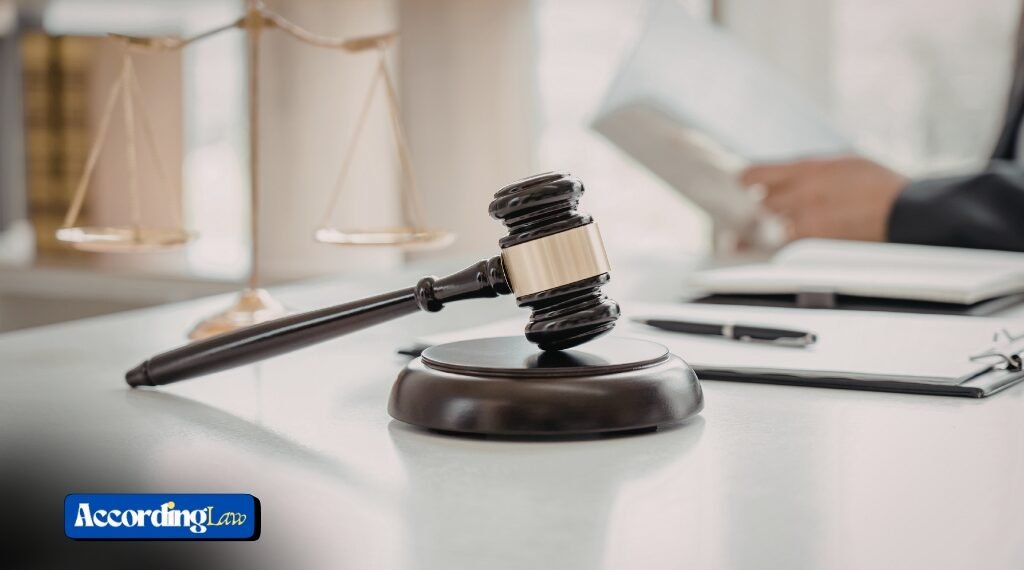When most people picture a court case, they think about the drama of the courtroom, the arguments, the verdict. What often gets forgotten is the financial toll that runs quietly in the background. Facing criminal charges is not only stressful and confronting, it can also drain your savings faster than you’d expect.
Legal proceedings come with a price tag that isn’t always obvious at the start. From court fees to expert reports and lost time at work, the expenses can stack up long before a verdict is reached. The good news is that with the right advice and planning, it’s possible to manage those costs sensibly. Firms like; Podmore Legal often help clients navigate this side of the process, giving people a clearer view of what to expect and how to prepare.
Table of Contents
Beyond the Lawyer’s Fee
When someone hires a criminal lawyer, the first question is usually about cost. It’s understandable. Legal fees can feel like a big, intimidating number. But the lawyer’s fee is only part of the story.
What many people don’t realise is how much time and effort goes into preparing a defence properly. A good lawyer does far more than turn up to court. They review police evidence, analyse interviews, research case law, negotiate with prosecutors, and prepare written submissions. Each of these steps takes time, and that time is what you’re paying for.
There are usually two common ways fees are structured. Some matters are handled on a fixed-fee basis, where you’ll know the total cost upfront. Others are billed by the hour, especially for complex or unpredictable cases. Both have their place, and neither is inherently better. What matters is clarity. Having a clear agreement about how your lawyer bills, what’s included, and what might be charged separately will help you avoid nasty surprises later.
At https://podmorelegal.com/, the team often encourages clients to talk openly about cost from the start. They know it can be awkward, but it’s far easier to manage expectations early than to deal with unexpected bills halfway through a case.
Court and Administrative Fees
Beyond legal fees, there are the administrative costs that come from simply being part of the court system. Every court has its own set of filing fees and procedural charges. In a criminal matter, you might not have to pay as much as in civil litigation, but there are still costs to think about.
Requesting official transcripts, lodging appeals, or applying for bail variations can all attract small but steady charges. The amount depends on which court your matter is in. The Magistrates Court is generally less expensive than the District or Supreme Court, but longer trials naturally mean higher overall costs.
On paper, each fee might look minor. Twenty pounds here, fifty there. But over the life of a criminal case, especially one that stretches across multiple hearings or appeals, those figures can start to add up. It’s the sort of slow, creeping expense that often catches people off guard.
The Cost of Time and Delays
Money is one thing, but time carries its own price. Every adjournment, delay, or postponed hearing can create another ripple of cost. For people who work casual shifts or run small businesses, taking another day off for court can mean losing income. Add in travel costs, parking, and the emotional fatigue of waiting for things to move forward, and the toll becomes heavier than most expect.
The legal system runs on schedules that often change without warning. Sometimes delays are unavoidable, but other times they happen because paperwork isn’t ready or communication has fallen through. Having an organised, proactive lawyer can make a real difference in keeping things on track. Podmore Legal is known for being methodical in their preparation, which often saves clients both money and frustration down the line.
Time costs are rarely written into invoices, but they can be felt in every part of daily life. Missing work, rescheduling family plans, or travelling repeatedly to court all eat away at energy and finances. Recognising that from the outset helps people plan more realistically for what lies ahead.
Bail-Related Costs
Bail can bring its own set of hidden expenses. Being granted bail is often a relief, but it doesn’t mean you’re free from obligations. Some bail conditions come with financial strings attached, like the requirement for a surety or a bond. If a family member acts as your surety, they’re effectively putting their money on the line to guarantee you’ll follow the conditions set by the court.
There can also be indirect costs tied to bail. For instance, if your conditions include living at a certain address or avoiding contact with particular people, you might need to relocate or change jobs temporarily. Reporting requirements can mean frequent travel to a police station, which adds up over time.
If bail is breached, the financial impact can multiply. Sureties can be forfeited, and further legal fees arise when facing new charges. That’s why having a lawyer experienced in bail applications is so valuable. The lawyers at Podmore Legal often help clients secure fair and manageable bail conditions, making it easier to stay compliant and avoid unnecessary costs later.
Expert Witnesses and Reports
Expert reports can be essential in defending a criminal case. Psychologists, medical specialists, or forensic experts may be called upon to assess evidence or give professional opinions that support your defence. These reports can be the deciding factor in how a case unfolds, especially when complex issues like mental health, intent, or physical evidence are involved.
However, expert input comes at a cost. Independent professionals charge for their time, their analysis, and their court appearances. Some reports are straightforward and affordable, while others require extensive testing and interviews that quickly become expensive.
A good lawyer will advise which reports are worth investing in and which might not add real value. Podmore Legal often helps clients weigh the benefit of an expert opinion against its price, keeping the focus on what will genuinely strengthen the defence. Spending strategically rather than broadly makes all the difference when resources are limited.
Travel, Accommodation, and Everyday Costs
For those living outside metropolitan areas, attending court often means more than a quick drive down the road. Travel costs can pile up fast, especially if multiple court appearances are needed. Petrol, parking fees, meals, and even overnight stays all become part of the equation.
Trials that run for several days can also require accommodation close to the courthouse, particularly for those living in rural parts of Western Australia. Then there’s the cost of arranging childcare or taking unpaid leave to attend. These are the expenses few people think about at the beginning but feel most keenly once proceedings are underway.
Even something as simple as commuting to the city for short mentions can start to weigh heavily over time. Understanding these practical costs early helps in planning ahead, rather than scrambling later to cover each new expense.
Emotional Costs with Financial Consequences
The emotional side of criminal proceedings is harder to measure, but its financial impact is real. Stress, anxiety, and exhaustion can affect concentration and performance at work. Some people end up taking time off for mental health reasons or reducing their hours to cope with the ongoing uncertainty.
Legal matters also tend to ripple through households. Family members often take time off to provide support, or relationships become strained under financial pressure. When the stress builds, it can lead to more spending on things like counselling, medication, or other support services.
Podmore Legal’s lawyers see this side of the process regularly. They understand that managing a criminal case is rarely confined to paperwork and court dates. It’s about maintaining stability through a difficult time, both emotionally and financially. Having a professional who sees the bigger picture can make that path easier to walk.
How to Manage and Prepare for These Costs
The key to managing legal costs is preparation. The earlier you understand what to expect, the better you can plan. Good communication with your lawyer is essential. Don’t be afraid to ask for an estimate or to discuss payment options. Most reputable firms, including Podmore Legal, are upfront about fees and will explain where extra costs might appear.
If your matter is in Canada, reviewing options for Legal Services in Ontario through providers like Benchmark Legal can help you compare scope, experience, and cost expectations early.
It also helps to set aside a small buffer for unexpected expenses. Court delays, extra reports, or changes in bail conditions can all shift the financial landscape mid-case. Treating your legal costs as a series of stages rather than a single figure makes them easier to manage.
Another practical step is to stay organised. Keep copies of all correspondence, receipts, and court notices. Missing documents or lost deadlines can cause avoidable costs that quickly become frustrating. Being proactive, asking questions, and keeping track of details can save both money and stress.
Taking Control of Your Case and Costs
There’s no easy way around it, legal proceedings are expensive. But knowing what you’re walking into makes all the difference. When you understand the hidden costs, you can take steps to manage them and prevent a difficult situation from becoming a financial disaster.
With experienced legal guidance, you can approach the process with more confidence and less confusion. The team at Podmore Legal often reminds clients that awareness is the first step to control. By being informed, asking questions, and planning ahead, you give yourself the best chance to come through the experience with both your finances and peace of mind intact.
Facing a criminal charge is never simple, but with the right advice and preparation, you can navigate it without letting the hidden costs catch you off guard.


